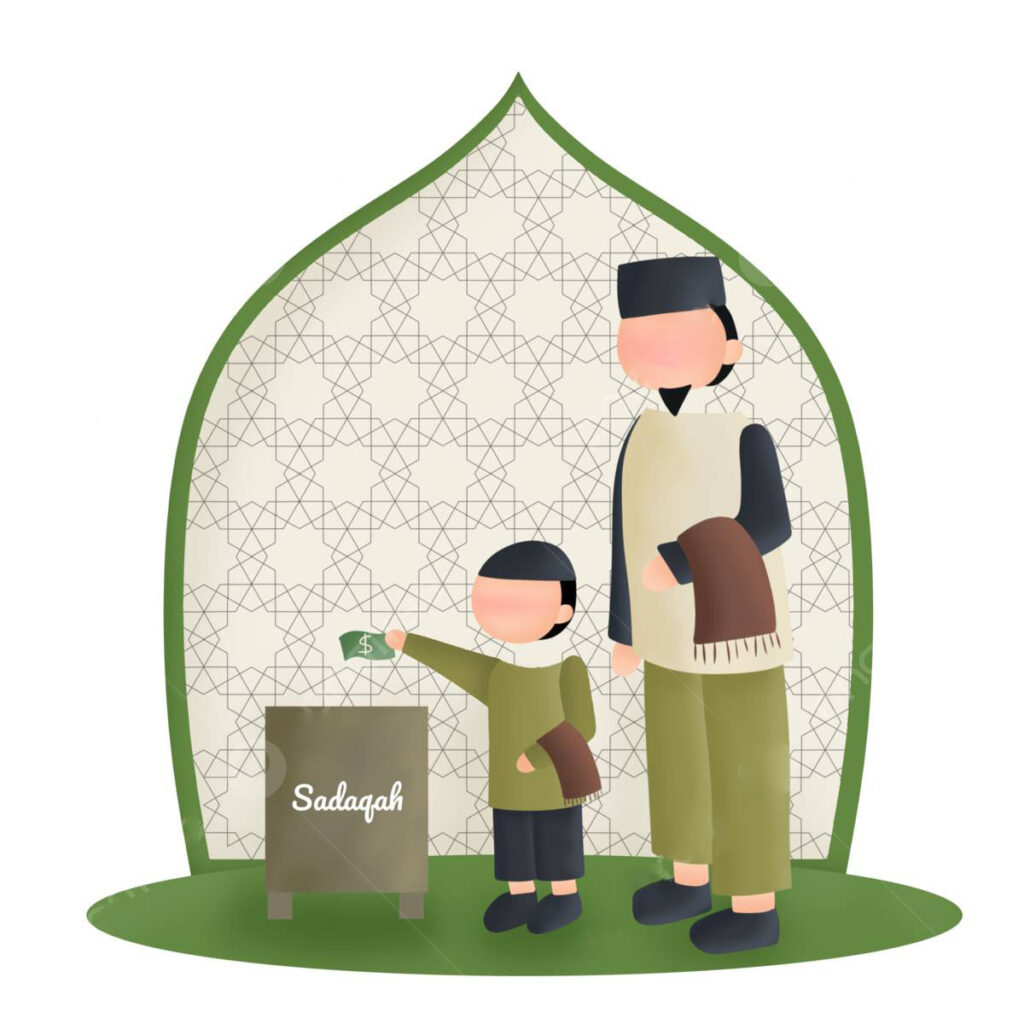
Sadaqah, one of the most revered acts in Islam, is an essential part of a Muslim’s relationship with Allah and the wider community. It refers to voluntary charity that a Muslim gives to help others in need, without expecting anything in return. Giving Sadaqah purifies one’s wealth, boosts spirituality, and increases rewards in the hereafter. This article will explore the meaning of Sadaqah and its various types, benefits, and importance in Islam. Additionally, we will clarify the difference between Zakat and Sadaqah and highlight key teachings from the Prophet Muhammad (PBUH).
Sign in now to Al-Dirassa Institute for tailored courses in Fiqh, and strengthen your understanding of Shariah with comprehensive lessons, expert guidance, and practical applications.
The term Sadaqah is derived from the Arabic word sidq, meaning “truth” or “sincerity.” Sadaqah is an act of charity that Muslims are encouraged to give to those in need. Unlike Zakat, which is an obligatory charity, Sadaqah is voluntary and can be given in various forms. It is a way to purify one’s wealth, gain closeness to Allah, and fulfill a moral duty of helping others.
In the Quran, Allah commands Muslims to give Sadaqah as an act of compassion and social responsibility. Sadaqah can be offered for a variety of causes, whether financial, emotional, or physical support. It can also involve small, everyday acts like offering a smile or speaking kindly to others.
Don’t want to go through the translation anymore?
30 free minutes with your qualified Egyptian teacher.
Sadaqah is not confined to money or material possessions. It encompasses a wide range of charitable acts. Here are the key types of Sadaqah in Islam:
Sadaqah holds immense benefits for both the giver and the receiver. The act of giving brings spiritual rewards and has a profound impact on the Muslim community.
Al-Dirassa Institute offers specialized courses in Fiqh that equip you with the essential skills to understand and apply Islamic law in various aspects of life, enhancing both your personal and spiritual growth.
Though both Zakat and Sadaqah are forms of charity in Islam, they differ in their nature and obligations:
The Prophet Muhammad (PBUH) emphasized the significance of charity, highlighting its benefits for both the giver and the receiver. Here are a few key Hadiths about Sadaqah:
Who Can Give Sadaqah?
Anyone who is financially able and sincere in their intentions can give Sadaqah. There are no restrictions on who can give; it can be given by anyone—whether rich or poor—provided they intend to seek Allah’s reward.
Who Deserves Sadaqah?
Sadaqah can be given to those who are in need, including the poor, orphans, widows, the elderly, and people who are struggling in different aspects of life. Additionally, Sadaqah can be given to people who may not be Muslim, as charity is not restricted by faith, as long as the intention is to seek Allah’s pleasure.
What is Sadaqah Jariyah?
Sadaqah Jariyah refers to a form of charity that continues to give rewards even after the giver has passed away. Examples include building infrastructure like schools, hospitals, and mosques, or planting trees that continue to benefit others. This type of charity is particularly powerful, as it generates rewards for the giver long after their death.
Is There a Right or Wrong Time to Give Sadaqah?
While Sadaqah can be given at any time, some moments hold greater rewards than others. For example, giving Sadaqah during the blessed months of Ramadan or on Fridays is seen as particularly beneficial. Similarly, giving charity during times of personal hardship or in the face of adversity can lead to even greater rewards, as it demonstrates sincerity and reliance on Allah.
Sadaqah is not just a financial act; it is a spiritual practice that nurtures the soul. By giving selflessly, Muslims strengthen their relationship with Allah (SWT), cultivating qualities like empathy, gratitude, and humility. Every act of charity, no matter how small, serves as a step closer to spiritual enlightenment.
Sign in now to Al-Dirassa Institute and enhance your understanding with specialized courses in Fiqh, designed to provide you with in-depth knowledge of Islamic law and its application in everyday life.
To know more: Trials in Islam: Patience, Wisdom, and Blessings
Discover the experiences of our delighted clients who have thoroughly enjoyed utilizing this standout feature.
Alhamdulillah I‘m very pleased with the arabic and Qur’an lessons I receive from teacher Umm Tasneem and I‘m also content with the al-dirassa administration team who were very quick in answering any questions I had. In a month I progressed a lot and I cannot wait to continue my studies with al-dirassa. May Allah reward everyone at al-dirassa.
Verified review - view original
My Qur’an teacher is fantastic, she teaches me in a loving and kind way where I look forward to the lessons and learn so much. My Arabic teacher is equally as nice and has a lot of patience with me, she has great expertise in the field and I’ve progressed really quickly with her. Thank you Al-dirassa!
Verified review - view original

Al-dirassa Institute offers you a gift to help you begin your journey to being fluent in Arabic and learning the Quran.

Al-dirassa Institute offers you a gift to help you begin your journey to being fluent in Arabic and learning the Quran.